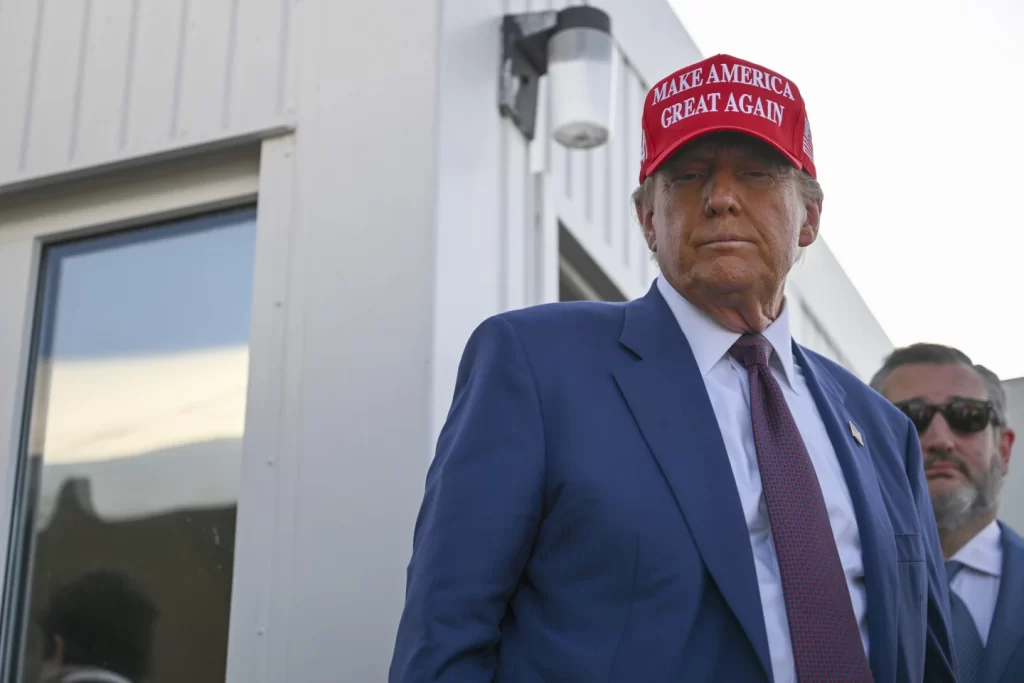
WASHINGTON — As senators prepare to consider President-elect Donald Trump’s picks for his Cabinet, they may be doing so without a well-established staple of the confirmation process: an FBI background check.
The Trump transition team has so far not signed the requisite agreements with the White House or the Justice Department to allow the FBI to screen his personnel choices, both for the process of obtaining security clearances and meeting the Senate’s usual standards for nominations.
That means the Senate could be asked to vote on Trump’s picks without the usual rigorous background checking meant to uncover personal problems, criminal histories or other red flags that would raise questions about a nominee’s suitability for the job. There already are questions about problematic issues related to a number of the people Trump wants in his administration.
“There are very real liabilities on the security side if you don’t get this right,” said Dan Meyer, a Washington lawyer at the Tully Rinckey law firm who specializes in background checks, security clearances and federal employment law.
At issue is a memorandum of understanding under which a president — or in this case, an incoming one — submits requests for name and background checks and the FBI commits to flagging to the White House any adverse information uncovered during the process.
But that document has not yet been signed, with the Trump transition team relying instead on internal campaign aides, allied groups and law firms on the outside to support the personnel effort. Trump for years has regarded FBI leadership with suspicion, in part because of the Russian election interference investigation that shadowed his first term and more recently because of FBI investigations into his hoarding of classified documents and his efforts to undo the results of the 2020 election that led to his indictment last year.
A Justice Department spokesperson said Wednesday that discussions were ongoing with the Trump transition team about signing the memo.
In a statement last week, the department said it was “committed to ensuring an orderly and effective transition” to the next administration.
“We are prepared to deliver briefings to the transition team on our operations and responsibilities, and we stand ready to process requests for security clearances for those who will need access to national security information,” the statement said.
For those appointees whose jobs involve a security clearance, a background check would be required. But once Trump takes office on Jan. 20, 2025, he could simply order that people be given a security clearance, as he was reported to have done for son-in-law Jared Kushner during his first term.
“The president is the head of the personnel security system,” Meyer said. “The director of national intelligence is his executive agent for that. The president could issue an executive order and he could change the security system in two seconds. It’s all his.”
Senate GOP leaders have said they would launch confirmation hearings as soon as the new Congress convenes on Jan. 3, and hope to begin voting on nominees as soon as inauguration day.
Lawmakers are complaining about what they see as insufficient screening of the picks they’re being asked to consider. Two Democratic House members, Don Beyer of Virginia and Ted Lieu of California, introduced a bill Tuesday that would codify the FBI’s role in the background check process for political appointees of the president.
The issue is of particular relevance given the eyebrow-raising backgrounds of some of Trump’s picks.
Trump’s choice for attorney general, former Florida Rep. Matt Gaetz, faced a Justice Department sex trafficking investigation into allegations involving underage girls that ended with no federal charges against him. There was also a House Ethics inquiry into whether Gaetz engaged in sexual misconduct and illicit drug use, accepted improper gifts and sought to obstruct government investigations of his conduct — allegations that he denies.
Asked Wednesday if she was concerned by the allegations, Republican Sen. Susan Collins of Maine said, “of course.”
“I said from the beginning that I was shocked by the nomination given the many allegations,” she added, “but that’s why it’s important that the Senate go through its process of making sure that we have a background check, that we have a Senate investigation which involves extensive interviews and questionnaires and then a public hearing.”
Pete Hegseth, picked for the role of defense secretary, was accused of sexual assault in 2017 after a speaking appearance at a Republican women’s event in Monterey, California, but was not charged after a police investigation.
His lawyer, Timothy Parlatore, described the sexual encounter as consensual and confirmed that Hegseth paid the woman a sum as part of a confidential settlement. Hegseth did so to head off a threatened lawsuit, according to Parlatore, who said his client was the victim of “blackmail” and a “successful extortion.”



